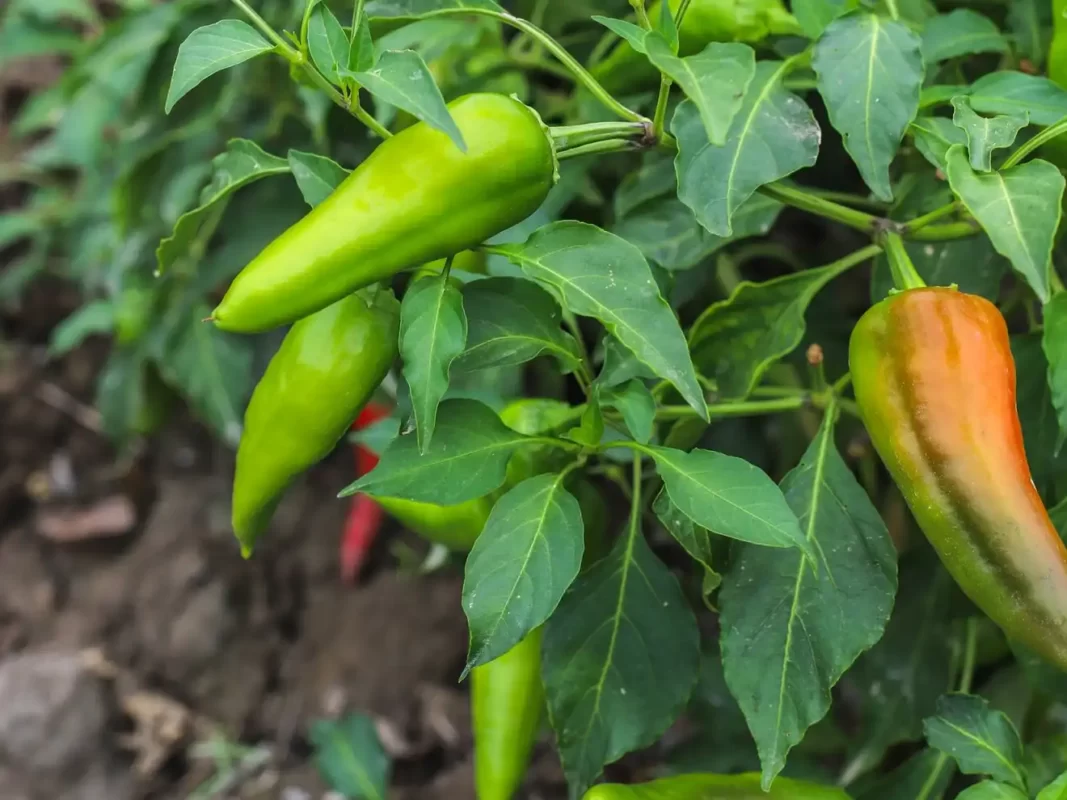Vegetable Gardening
Pepper Plant Watering Guide: Tips for Perfectly Hydrated Peppers
Growing pepper plants can be a rewarding and enjoyable experience. To ensure their healthy growth and abundant harvest, proper watering is essential. In this guide, we will walk you through the best practices for watering pepper plants at every stage of their growth.
1. Seedling Stage
When your pepper plants are in the seedling stage, it’s crucial to provide them with consistent moisture. Start by watering the soil thoroughly after planting the seeds. Use a gentle spray or a watering can to avoid disturbing the delicate seedlings. It’s important to keep the soil evenly moist, but not waterlogged.
Check the soil moisture daily and water as needed to maintain the desired moisture level. Avoid overwatering, as it can lead to root rot and other diseases. As the seedlings grow, gradually increase the amount of water, allowing the top inch of soil to dry out between watering sessions.
2. Vegetative Stage
During the vegetative stage, pepper plants develop their foliage and establish a strong root system. Watering deeply and less frequently is the key to encouraging deep root growth. Aim to water the plants once or twice a week, depending on the weather conditions and soil moisture.
When watering, ensure that the water reaches the root zone by soaking the soil around the base of the plants. Avoid wetting the foliage, as it can lead to fungal diseases. Mulching the soil around the plants can help retain moisture and reduce weed competition.
3. Flowering and Fruit Development Stage
As your pepper plants enter the flowering and fruit development stage, they require consistent moisture to support the growth of healthy peppers. Monitor the soil moisture regularly and water when the top inch of soil feels dry.
During hot and dry periods, you may need to water more frequently. However, be cautious not to overwater, as it can cause the fruits to become waterlogged and prone to rot. Water deeply, allowing the water to penetrate the root zone.
4. Harvest Stage
When your pepper plants start producing ripe fruits, it’s important to maintain a balanced watering routine. Water the plants deeply and regularly, ensuring that the soil remains evenly moist. However, reduce the frequency of watering slightly to prevent the fruits from becoming excessively watery.
Be mindful of the weather conditions during the harvest stage. If there is heavy rainfall, you may need to adjust your watering schedule accordingly. Remember to water at the base of the plants and avoid wetting the leaves and fruits to minimize the risk of diseases.
5. Additional Watering Tips
Here are some additional tips to keep in mind when watering your pepper plants:
- Water in the morning or early afternoon to allow the foliage to dry before evening, reducing the risk of fungal diseases.
- Use a watering wand or a soaker hose to deliver water directly to the root zone, minimizing water waste.
- Consider using a drip irrigation system for larger pepper plantations, as it provides a consistent and efficient way of watering.
- Regularly monitor the soil moisture using a moisture meter or by simply checking the soil with your finger. Adjust your watering schedule accordingly.
- Observe your plants for signs of overwatering or underwatering, such as yellowing leaves, wilting, or root rot. Adjust your watering practices accordingly.
Conclusion
Proper watering is crucial for the healthy growth and productivity of pepper plants. By following the guidelines provided for each stage of growth, you can ensure that your pepper plants receive the right amount of moisture at the right time. Remember to monitor the soil moisture, avoid overwatering, and water at the base of the plants to promote deep root growth. With proper watering, your pepper plants will thrive and reward you with a generous harvest.






